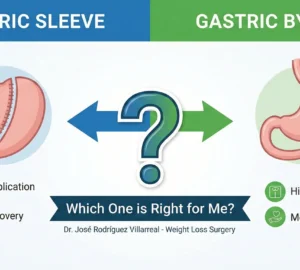Water: The Most Essential Element For Life
Did you know that just as earth’s surface is made of two-thirds of water our human body too consists of almost 75% of water??
Water is one of the key elements responsible for life on earth. Water helps the earth by passing through the surface carrying and transporting with it nutrients, organic matter, and waste material. Within our body water similarly helps circulate substances by transporting nutrients and flushing out toxins and waste material. It further regulates body temperature and activities of tissues, cells, lymph, blood and glandular functions.
Water is absolutely essential to the mechanics of the human body. The entire structure of human body depends on water for its functioning. The human brain is made up of 75% water, our blood consists of 82% water and our lungs contain 90% of water. A mere 2% drop in our body's water supply can trigger fuzzy short-term memory, difficulty focusing on smaller print, and daytime fatigue: all signs of a condition known as dehydration.
Water is further essential for all bodily functions such as digestion, assimilation, elimination, respiration, regulation of temperature (homeostasis) integrity and the strength of tissues, cells and organs of the body. Some of the essential functions of water are as follows:
Water acts as a lubricant
Waters lubrication properties are indispensable to all bodyily functions and assist in digestion, joint, and a number of other processes. Water content in our saliva not only helps in chewing and swallowing, but also ensures that the chewed food slides down the esophagus easily. Water lubricates our joints and cartilages thus allowing free, easy and friction free movement that avoids bone injuries, pain and arthritis. It further protects our spinal cord as it acts as a lubricant and cushion for the spinal cord. Water also gives our eyes needed lubrication for them to work well and remain healthy.
Water helps in thermoregulation
A unique property of water helps our body in thermoregulation. Water has a has a high heat capacity, meaning it takes higher temperature for water to get heated up. Our bodies have a natural mechanism to control heat through perspiration and sustain cold temperature by conserving heat. When the outside temperature is higher than that of our body, water in our body evaporates from sweat glands and the skin, which produces a cooling effect. Conversely in a cold environment, the skin maintains proper body temperature by shunting the blood away from the exterior surface thereby conserving heat within the body. The movement of water within our cellular systems is mainly through blood plasma, which is 92% water. Our blood plays a vital role in regulating the body’s pH, circulating antibodies from the immune system, and regulating osmotic balance. This all leads to better regulation and maintenance of basic bodily functions.
Water transports and metabolizes
Water helps remove toxins and impurities from our body. The kidneys, liver and intestines use water to flush out waste from our body. Water also helps prevent constipation by softening stools and helping to move the food eaten down the intestinal tract. Water is necessary for digestion of soluble fiber thereby ensuring better bowel health.
Furthermore, water transports nutrients and oxygen that are essential to our body from one part of the body to other and is responsible for biological breakdown of carbohydrates, protein and the many vitamins and minerals required by the body. This all ensures proper functioning of muscles and also aids in weight loss.
Why is hydration important after bariatric surgery?
Water is not just vital for quenching thirst and regulating body temperature; it is equally important for sustained weight loss. Hydration after weight loss surgery is important and may be a challenge for many patients. All weight loss surgeries are aimed to reduce the size of the stomach in order to limit the food intake capacity. It is this reduced capacity of the stomach that enables one to lose weight significantly. One tends to eat less and feel satisfied quickly. This holds true not only to the food that one eats but also for the liquids that one consumes.
Water is extremely vital to weight loss procedures. What is required at this time is organized meal planning with adequate intake of water. When on a losing weight regime, the body has heavy loads of waste products to eliminate, mostly in the form of urine. A high water intake helps the body to rid itself of waste products efficiently, promoting better weight loss.
Water fills your stomach and helps to prolong the sense of satisfaction with food. If you feel a desire to eat between meals, sipping water gives you a sense of fullness. This way one consumes less food even eliminating the cravings for food gradually.
Hydration is vital to bariatric surgery patients. BeLiteWeight recommends to stay hydrated with water more than any other fluid. Water is low in calories, free of sugar and carbonation, and is not a diuretic which leads to the retention of liquid in the body. Instead, water helps the body with so many of its natural functions!
So sip water all and jumpstart your weight loss with a good H2O regime. Stay hydrated!!
For more information about Weight Loss Surgery and how it can lead to a healthier lifestyle call BeLiteWeight today!
LINKS TO INFO
http://www.livestrong.com/article/539337-how-does-sweat-help-to-maintain-body-temperature/
http://www.everydayhealth.com/water-health/water-body-health.aspx
http://www.nestle-waters.com/healthy-hydration/water-fonctions-in-human-body
http://www.bodybuilding.com/fun/clark2.htm
http://www.freedrinkingwater.com/water-education/water-health.htm
http://www.healthcentral.com/obesity/c/276918/153447/bypass-bariatric/
http://archive.constantcontact.com/fs008/1101189349792/archive/1104373094445.html
http://www.longstreetclinic.com/bariatrics/life-after-gastric-bypass-surgery/
https://www.ucsfhealth.org/education/dietary_guidelines_after_gastric_bypass/









